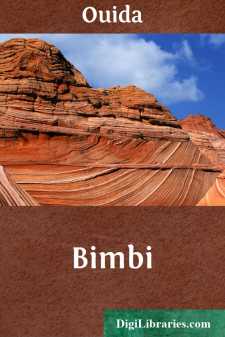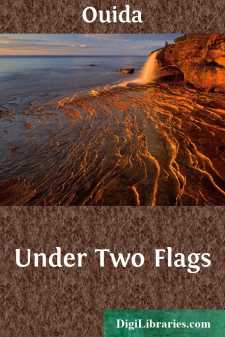Categories
- Antiques & Collectibles 13
- Architecture 36
- Art 48
- Bibles 22
- Biography & Autobiography 813
- Body, Mind & Spirit 142
- Business & Economics 28
- Children's Books 17
- Children's Fiction 14
- Computers 4
- Cooking 94
- Crafts & Hobbies 4
- Drama 346
- Education 46
- Family & Relationships 57
- Fiction 11829
- Games 19
- Gardening 17
- Health & Fitness 34
- History 1377
- House & Home 1
- Humor 147
- Juvenile Fiction 1873
- Juvenile Nonfiction 202
- Language Arts & Disciplines 88
- Law 16
- Literary Collections 686
- Literary Criticism 179
- Mathematics 13
- Medical 41
- Music 40
- Nature 179
- Non-Classifiable 1768
- Performing Arts 7
- Periodicals 1453
- Philosophy 64
- Photography 2
- Poetry 896
- Political Science 203
- Psychology 42
- Reference 154
- Religion 513
- Science 126
- Self-Help 84
- Social Science 81
- Sports & Recreation 34
- Study Aids 3
- Technology & Engineering 59
- Transportation 23
- Travel 463
- True Crime 29
The Waters of Edera
by: Ouida
Description:
Excerpt
I
It was a country of wide pastures, of moors covered with heath, of rock-born streams and rivulets, of forest and hill and dale, sparsely inhabited, with the sea to the eastward of it, unseen, and the mountains everywhere visible always, and endlessly changing in aspect.
Herdsmen and shepherds wandered over it, and along its almost disused roads pedlars and pack mules passed at times but rarely. Minerals and marbles were under its turf, but none sought for them; pools and lakes slept in it, undisturbed save by millions of water fowl and their pursuers. The ruins of temples and palaces were overgrown by its wild berries and wild flowers. The buffalo browsed where emperors had feasted, and the bittern winged its slow flight over the fields of forgotten battles.
It was the season when the flocks are brought through this lonely land, coming from the plains to the hills. Many of them passed on their way thus along the course of the Edera water. The shepherds, clothed in goatskin, with the hair worn outward, bearded, brown, hirsute men, looking like savage satyrs, the flocks they drove before them travel-worn, lame, heart-broken, the lambs and kids bleating painfully. They cannot keep up with the pace of the flock, and, when they fall behind, the shepherds slit their throats, roast their bodies over an evening fire, or bake them under its ashes, and eat them; if a town or village be near, the little corpses are sold in it. Often a sheep dog or a puppy drops down in the same way, footsore and worn out; then the shepherds do not tarry, but leave the creatures to their fate, to die slowly of thirst and hunger.
The good shepherd is a false phrase. No one is more brutal than a shepherd. If he were not so he could not bear his life for a day.
All that he does is brutal. He stones the flock where it would tarry against his will. He mutilates the males, and drags the females away from their sucking babes. He shears their fleeces every spring, unheeding how the raw skin drops blood. He drives the halting, footsore, crippled animals on by force over flint and slate and parching dust. Sometimes he makes them travel twenty miles a day.
For his pastime he sets the finest of his beasts to fight. This is the feast day and holiday sport of all the shepherds; and they bet on it, until all they have, which is but little, goes on the heads of the rams; and one will wager his breeches, and another his skin jacket, and another his comely wife, and the ram which is beaten, if he have any life left in him, will be stabbed in the throat by his owner: for he is considered to have disgraced the branca.
This Sunday and Saints' day sport was going on a piece of grass land in the district known as the Vale of Edera.
On the turf, cleared of its heaths and ferns, there was a ring of men, three of them shepherds, the rest peasants. In the midst of them were the rams, two chosen beasts pitted against each other like two pugilists. They advanced slowly at first, then more quickly, and yet more quickly, till they met with a crash, their two foreheads, hard as though carven in stone, coming in collision with a terrible force; then each, staggered by the encounter, drew back, dizzy and bruised, to recoil, and take breath, and gather fresh force, and so charge one on the other in successive rounds until the weaker should succumb, and, mangled and senseless, should arise no more....









